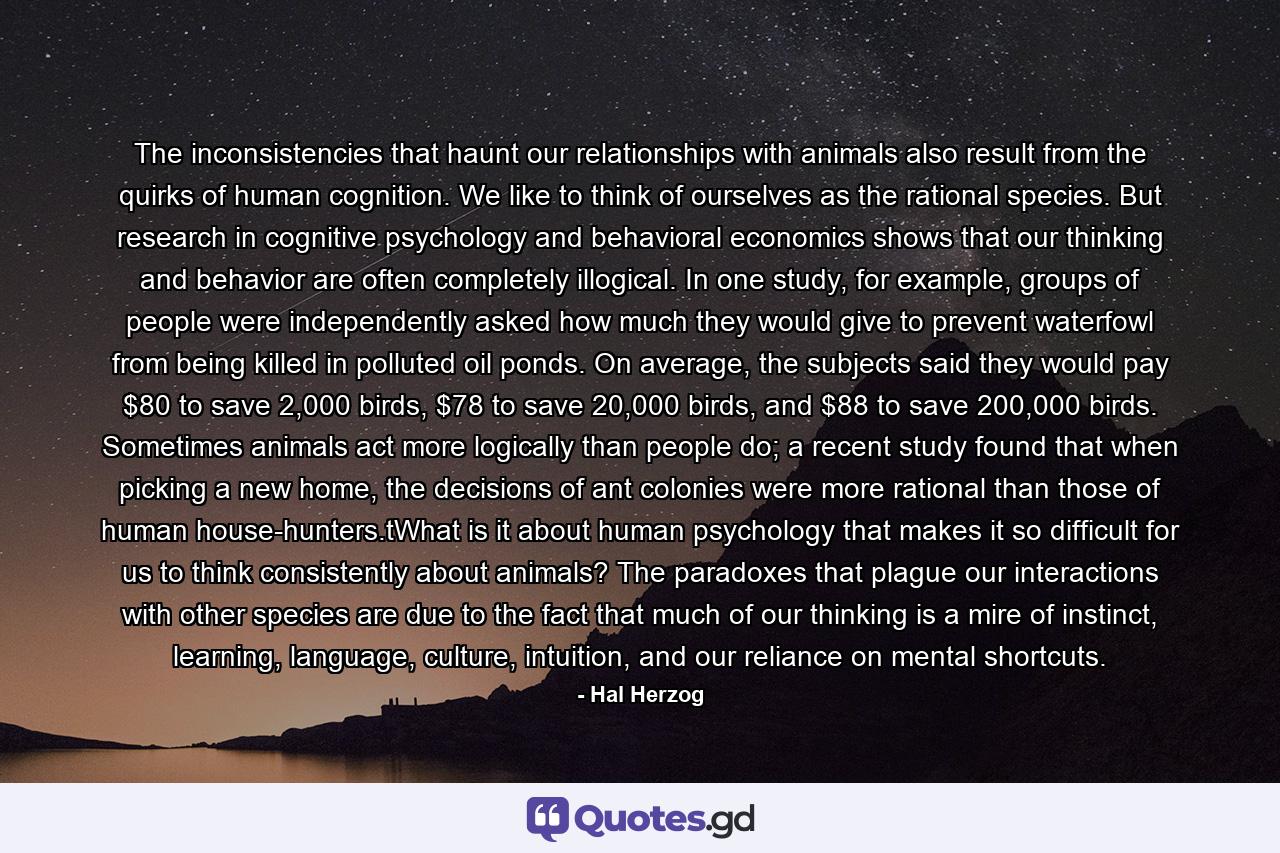The inconsistencies that haunt our relationships with animals also result from the quirks of human cognition. We like to think of ourselves as the rational species. But research in cognitive psychology and behavioral economics shows that our thinking and behavior are often completely illogical. In one study, for example, groups of people were independently asked how much they would give to prevent waterfowl from being killed in polluted oil ponds. On average, the subjects said they would pay $80 to save 2,000 birds, $78 to save 20,000 birds, and $88 to save 200,000 birds. Sometimes animals act more logically than people do; a recent study found that when picking a new home, the decisions of ant colonies were more rational than those of human house-hunters.tWhat is it about human psychology that makes it so difficult for us to think consistently about animals? The paradoxes that plague our interactions with other species are due to the fact that much of our thinking is a mire of instinct, learning, language, culture, intuition, and our reliance on mental shortcuts.
